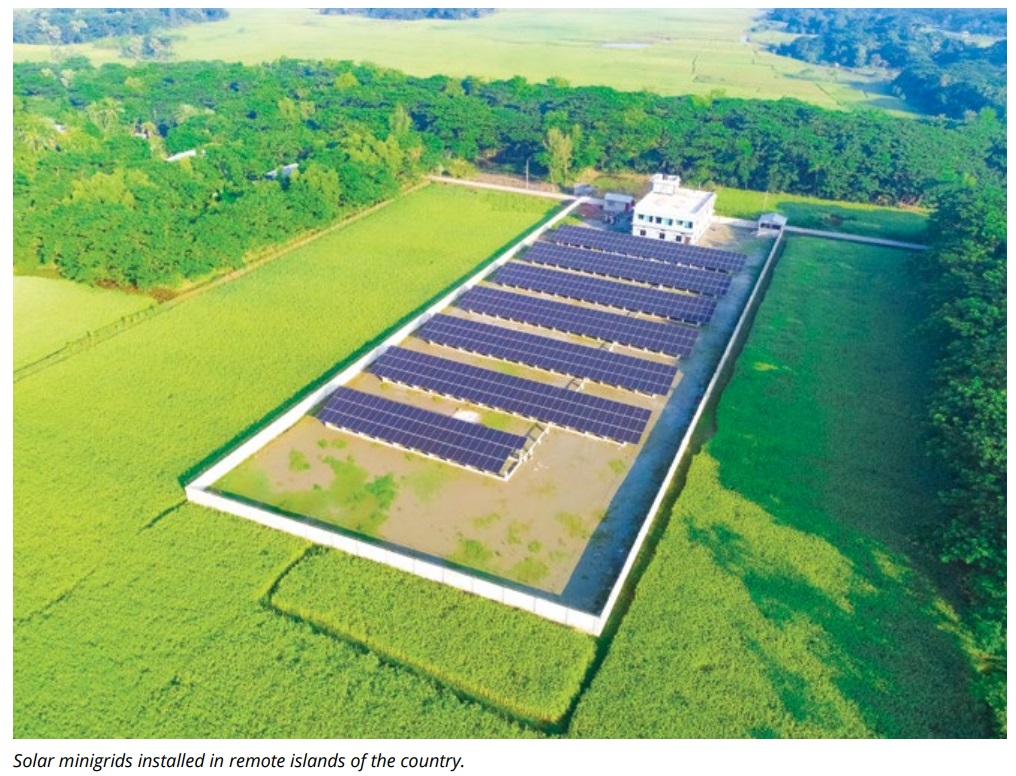

A large portion of the population of Bangladesh live in remote rural areas, far away from existing grid line and sometimes are, isolated from the mainland by river or sea. As such, it was challenging to reach out to those population with grid electricity. In this backdrop, solar mini-grids implemented by the private sector under IDCOL financing provided access to grid quality electricity for 24x7 to these rural population and played an important role to complement the commitment of the GoB to ensure Electricity for all by 2021. Located in river and sea islands, 26 IDCOL solar mini-grids have not only provided improved electricity services to the rural inhabitants but also encouraged huge economic activities which otherwise is not possible to be served by SHS. IDCOL extended 50% of the project cost as grant and 30% as long-term concessionary loan to the private sector sponsors so that they can offer electricity services to the rural people at an affordable tariff. The remaining 20% of the project cost was put in as equity by the sponsors. IDCOL sources the required financing from the World Bank, KfW, GPOBA, JICA, USAID, ADB and DFID to implement these solar mini-grids.

The prominent features of solar mini-grid projects are as follows: • The sponsor is responsible for identifying suitable site, to procure equipment from suppliers, to ensure installation and commission of the plant and after implementation, to sell electricity to end-customers at a specific tariff. • The sponsor is required to retain a technical consultant for providing design, supervision and other technical support to the sponsor. However, if a sponsor has adequate technical capacity, it may not need to engage such technical consultant. • IDCOL provides soft loan, grant, and technical as well as project development supports to the sponsors. • The suppliers supply and install the required equipment and machineries e.g. solar PV panel, inverter, batteries, generator, pole and pole fittings, cable, etc. at site


